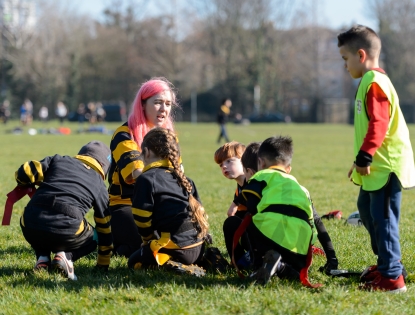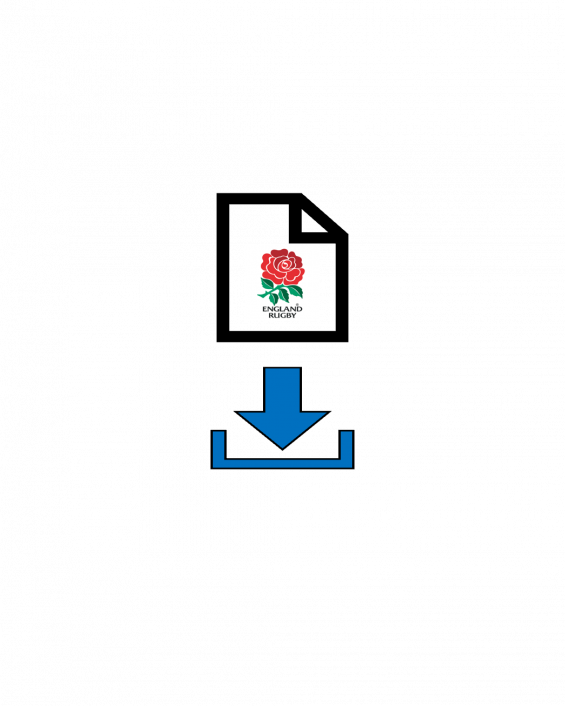
NLD Safeguarding Children
Safeguarding children in rugby is hugely important. It is vital they are cared for in the correct manner and this page should assist you with all areas of Safeguarding.
The Rugby Football Union (RFU) and the NLD are committed to safeguarding and promoting the welfare of children in the sport. All children are entitled to feel safe and protected from any form of abuse and neglect, and have the right to take part in sport in a safe, positive and enjoyable environment.
- The welfare of the child is paramount
- All participants regardless of age, sex, ability or disability, race, colour, nationality, ethnic or national origin, religion or belief, size, or sexual orientation have the right to protection from harm
- All allegations, suspicions of harm and concerns will be taken seriously and responded to swiftly, fairly and appropriately
- Everyone will work in partnership to promote the welfare, health and development of children
Lots of information on Safeguarding is available on the RFU Website, including current policies and guidance, details on upcoming courses as well as lots of advice and information on safeguarding the young and vulnerable players within our sport, including specific information for parents and volunteers.
A copy of the RFU Referral form is also available to download here.
- Situation Vacant -
The Safeguarding Manager deals with all safeguarding issues including referrals, audits, training courses, playing up/down age grades, U17s playing senior rugby, supporting CSOs, DBS checks
Disclosure & Barring Service (DBS)
The RFU also offers comprehensive guidance on the Disclosure & Barring Service (DBS). It will take you through all of necessary procedures and also offers an FAQ section which is sure to be useful to those undertaking the DBS Check.
All coaches, managers, first aiders or those working on a regular basis with children up to the age of 18 should have a current DBS check. It is now a requirement that before applying for a DBS check that person has completed the online safeguarding training at England Rugby which will show on GMS otherwise the application will be rejected.
Safeguarding Courses
The RFU also delivers three safeguarding courses:
INTRODUCTION TO SAFEGUARDING
This free 30-minute eLearning course is for anyone working or volunteering with children in rugby union to ensure a basic understanding of safeguarding.
The completion of the Introduction to Safeguarding is compulsory prior to all DBS applications and prior to participation in England Rugby Coaching or Refereeing Award Courses.
Places can be booked on the RFU GMS course booking page.
PLAY IT SAFE
Play It Safe safeguarding courses are for all clubs and we are lucky that we have a number of trainers within NLD – so if you haven’t had one at your club for a while, you can book a course by emailing [email protected]. There is a limit of 20 per course and they are 3 hours long
Courses can be booked by NLD clubs through Kristina Magnus on [email protected] or individual places can be booked on the RFU GMS course booking page.
Clubs wanting to organise Play it Safe courses should reference Club Requirements for Hosting a Covid Safe Play it Safe Course
IN TOUCH
In Touch safeguarding courses are aimed at Club Safeguarding Officers who must complete this within six months of taking up the position. These are a three hour online course run by the team at Twickenham and can be booked though the RFU courses page (make sure you don’t put your postcode in or it doesn’t show up). If you haven’t done one for a long time please book on to keep up to date also there were some CSOs on the SG audit who had not completed it so please book on to one.
This three-hour workshop is run online by the team at Twickenham and places can be booked on the RFU GMS course booking page.
More information on Safeguarding courses is available on the RFU website
Club Safeguarding Officers
Each Club has a Club Safeguarding Officer (CSO) who is available within the club to ensure all procedures are adhered to and there is a safe playing environment at all times.
Playing Out of Age Grade
The priority is always for age grade players to play in their defined age/year group, with their peers/friends and where those that support them are most closely connected.
Playing out of age grade is the exception. For any player to do so, the circumstances, conditions, assessments and approvals required in regulation must be in place beforehand. The ultimate consideration must be the welfare and safety of all the players involved. The following online forms are used to manage the playing out of age grade processes:
PLAYING UP OR DOWN OUT OF AGE GRADE APPROVAL FORM: applicable to individual players for whom it is appropriate to play out of age grade
COMBINING OUT OF AGE GRADE APPROVAL FORM: applicable to groups of players joining another age group
Please note, there are separate forms and process for 17 year olds playing adult rugby (see below) and England Academy Players.
Related Information
Regulation 15.5 - 17 Year Olds Playing Adult Rugby
There is a two-stage process for approving 17 year old players to play adult rugby – the approval process described in the Club Guide to Regulation 15.5, where it is summarised as follows:
- The Club must apply for and be approved by its Constituent Body (CB) to play 17 year olds in adult rugby. This is done by completing and submitting
the online PLAYING ADULT RUGBY – CLUB APPROVAL FORM (smartsheet.com) and process each season. - The Club must assess each individual 17 year old who wishes to play adult rugby and gain approval from its CB for the player to do so. This is done
by completing and submitting the online PLAYING ADULT RUGBY – PLAYER APPROVAL FORM (smartsheet.com) and process.
Once approved, the individual can play adult rugby through to their 18th birthday









